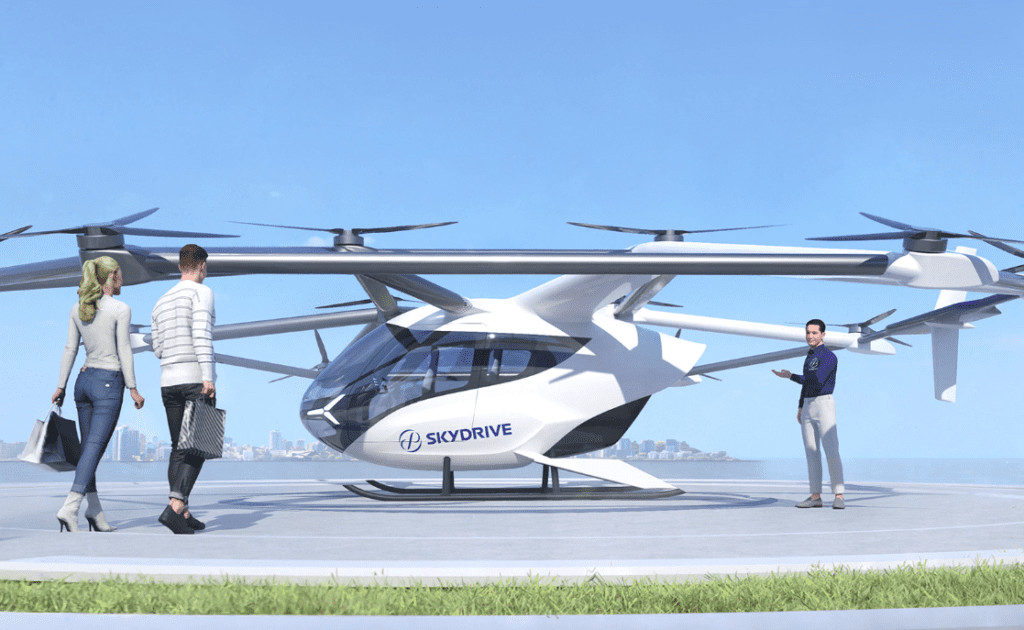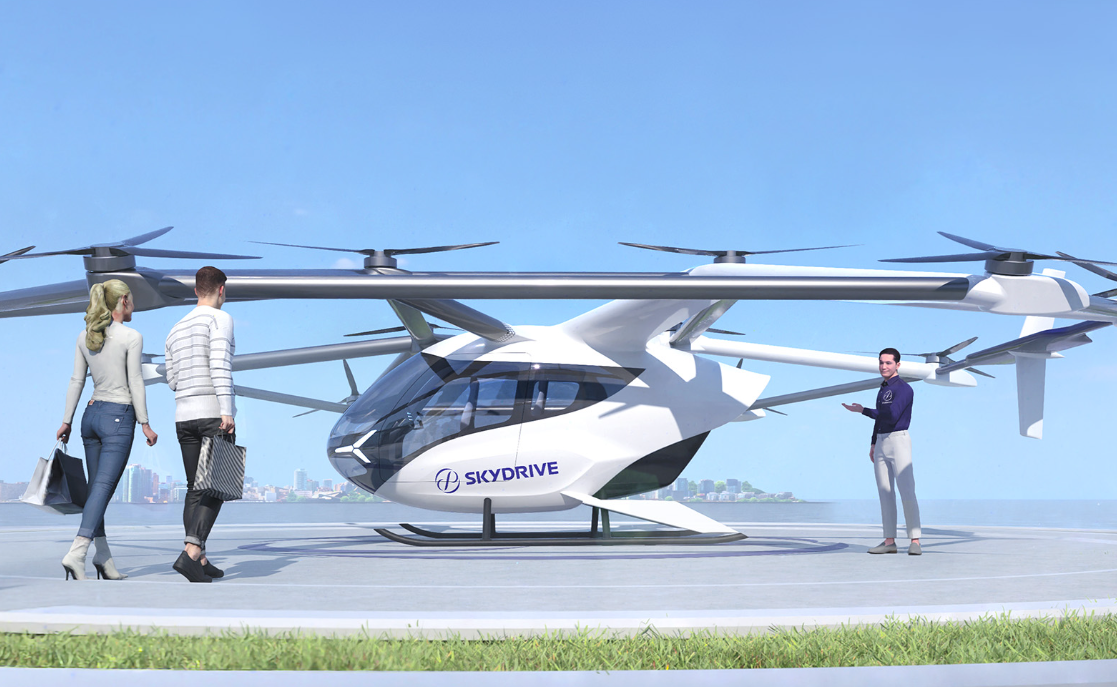Japanese automaker Suzuki has teamed up with Tokyo-based flying car firm SkyDrive to embark on the production of electric flying cars, introducing a whole new dimension to the concept of personal transportation. This groundbreaking collaboration aims to manufacture zero-emission vertical takeoff and landing (eVTOL) aircraft, powered by electric engines.
Suzuki’s statement revealed their plans to commence production at their central Japan factory by next spring, with the automaker fully supporting SkyDrive in various aspects, including talent acquisition for the design and development of these futuristic vehicles. Meanwhile, SkyDrive will establish a subsidiary dedicated to the development of electric-engine-powered aircraft.

Particularly interesting in this partnership are the discussions about targeting emerging markets such as India, which has become a focal point for electric vehicle launches. Given Suzuki’s significant market share in India, accounting for over 46% of non-electric vehicles, their foray into the electric vehicle market seems promising. Imagine how interesting it would be if Maruti Suzuki announced plans to unveil an electric flying vehicle in the near future.
While Suzuki’s parent company, Suzuki Motor Corporation, has announced a substantial investment of Rs 10,440 crore in India to strengthen its electric vehicle strategy, it remains uncertain whether this investment encompasses the research and development, as well as manufacturing, of flying electric cars for the Indian market.
However, even if the investment extends to the production of eVTOL aircraft for India, challenges lie ahead in the form of undefined regulations and norms, posing potential hurdles to the widespread adoption of compact flying vehicles.
It is worth noting that the concept of electric vertical take-off and landing (eVTOL) aircraft is not entirely new in India. Recently, a startup from IIT Madras showcased its electric flying taxi during the Aero India Show in Bengaluru. Developed by the team in Chennai, the ePlane Company’s flying taxi prototype boasts a maximum cruising altitude of 457m (1,500 ft) and a range of 200 km on a single charge. There was no official information on the official release of the ePlane though.
A successful realization of electric flying cars remains an exciting prospect as the automotive industry explores the possibilities of electric mobility and futuristic modes of transportation. Although electric aviation may take some time to reach mass adoption, visionary collaborations like Suzuki and SkyDrive hold immense potential for revolutionizing urban commuting and transportation. What’s your take on flying electric aircraft in India? Let us know in the comments.












